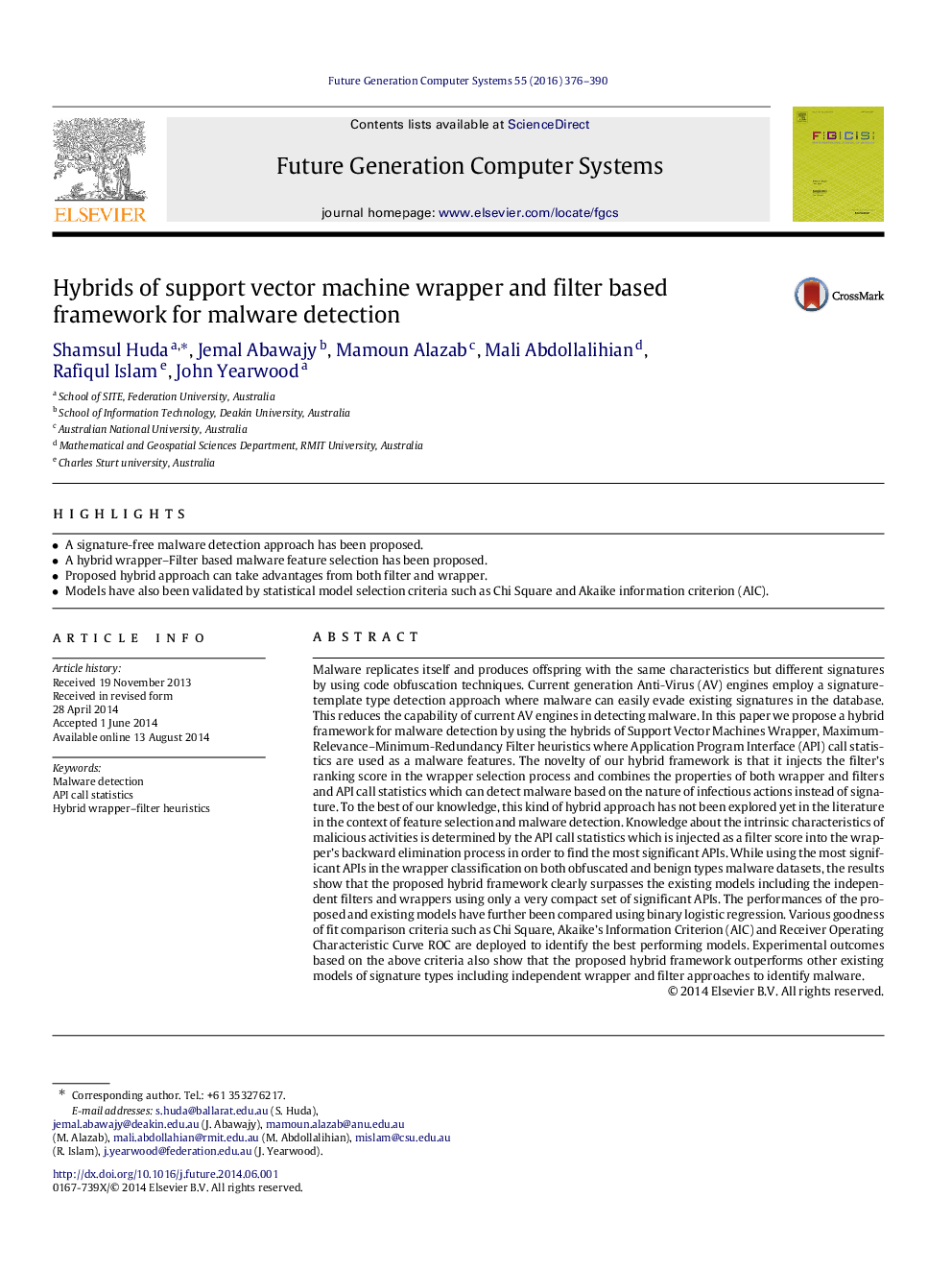| کد مقاله | کد نشریه | سال انتشار | مقاله انگلیسی | نسخه تمام متن |
|---|---|---|---|---|
| 425585 | 685780 | 2016 | 15 صفحه PDF | دانلود رایگان |
• A signature-free malware detection approach has been proposed.
• A hybrid wrapper–Filter based malware feature selection has been proposed.
• Proposed hybrid approach can take advantages from both filter and wrapper.
• Models have also been validated by statistical model selection criteria such as Chi Square and Akaike information criterion (AIC).
Malware replicates itself and produces offspring with the same characteristics but different signatures by using code obfuscation techniques. Current generation Anti-Virus (AV) engines employ a signature-template type detection approach where malware can easily evade existing signatures in the database. This reduces the capability of current AV engines in detecting malware. In this paper we propose a hybrid framework for malware detection by using the hybrids of Support Vector Machines Wrapper, Maximum-Relevance–Minimum-Redundancy Filter heuristics where Application Program Interface (API) call statistics are used as a malware features. The novelty of our hybrid framework is that it injects the filter’s ranking score in the wrapper selection process and combines the properties of both wrapper and filters and API call statistics which can detect malware based on the nature of infectious actions instead of signature. To the best of our knowledge, this kind of hybrid approach has not been explored yet in the literature in the context of feature selection and malware detection. Knowledge about the intrinsic characteristics of malicious activities is determined by the API call statistics which is injected as a filter score into the wrapper’s backward elimination process in order to find the most significant APIs. While using the most significant APIs in the wrapper classification on both obfuscated and benign types malware datasets, the results show that the proposed hybrid framework clearly surpasses the existing models including the independent filters and wrappers using only a very compact set of significant APIs. The performances of the proposed and existing models have further been compared using binary logistic regression. Various goodness of fit comparison criteria such as Chi Square, Akaike’s Information Criterion (AIC) and Receiver Operating Characteristic Curve ROC are deployed to identify the best performing models. Experimental outcomes based on the above criteria also show that the proposed hybrid framework outperforms other existing models of signature types including independent wrapper and filter approaches to identify malware.
Journal: Future Generation Computer Systems - Volume 55, February 2016, Pages 376–390
